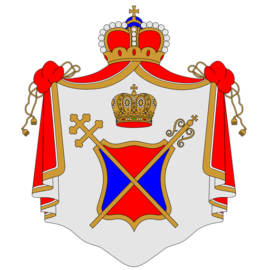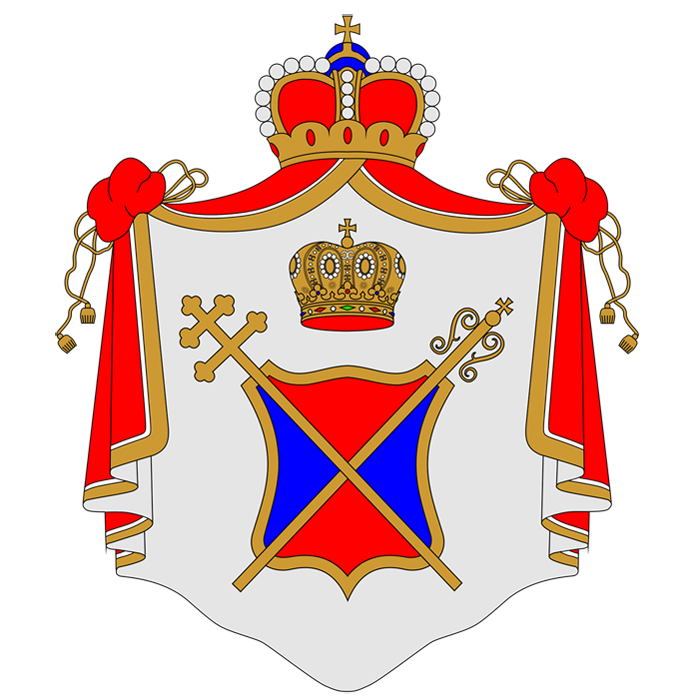Kurt Volker: The West must understand that the Serbian Church is pursuing the policies of Belgrade and Moscow
(Source: Побједа / CdM)
Belgrade deliberately organized such enthronement in Cetinje to promote Serbia’s regional agenda and to question Montenegrin independence, US diplomat and former ambassador to NATO Kurt Volker said in a conversation with Pobjeda. He points out that Washington must change the policy it pursues in Montenegro.
You followed the events in Cetinje and the violent enthronement of the Metropolitan of the Church of Serbia in the Cetinje Monastery. The action was carried out by the Government of Montenegro with direct input from Belgrade. The attack on a member of the Alliance – Montenegro passed with complete silence of the West? Why?
Volker: I am very sorry that everything happened in such a way, and the Serbian Church should not have forced this enthronement in Cetinje. It should have functioned differently in Montenegro, not only now in Cetinje, but also earlier – Serbian Church should have registered as a religious community and respect the laws of an independent state. That lawlessness lasted too long. Of course, when analyzing these things, a foreign factor cannot be denied. The Serbian and Russian churches are very close and there is a direct influence of the Kremlin, which has an interest in destabilizing this area. Especially Montenegro, which is a member of the Alliance and a leader in EU integration. I will say that the problem is with the West, although I have not yet told anyone from the American administration about this issue, they simply do not know how to get involved because it is also a religious issue, and not just a foreign policy one. But I am sure that it is clear to Washington that they look at this issue from Serbia and Russia as a foreign policy issue. We must strengthen our support for Montenegrin independence, the strengthening of democracy, and the dialogue on the religious problem that exists must be opened and closed in Montenegro.
Does Washington see the Serbian Church pursuing Belgrade’s foreign policy through the concept of the Serbian world. This is not a religious but a foreign – political issue?
Volker: I understand your thesis and I think you are right, that is the key problem. Belgrade deliberately organized such enthronement in Cetinje to promote Serbia’s regional agenda and to call into question Montenegrin independence. In the West, the church and the state are strictly separated and the issue of religion is never linked to foreign policy. In the West, churches do not pursue political agendas as the Serbian and Russian churches do.
A new US ambassador should be appointed in Montenegro, does the current Montenegrin government have the full support of the US embassy, even though it carried out this violent enthronement in Cetinje? Can we expect the new ambassador to understand these issues and take a different approach?
Volker: The job of an ambassador is to work in the interest of the United States and to have good relations with everyone, not to interfere in internal affairs. In addition, it is crucial that it respects the sovereignty of Montenegro. The situation in Montenegro is very specific because the parties in power are under the influence of the Serbian Church, which practically does not recognize Montenegrin independence, and at the same time Montenegro is a member of the Alliance and is progressing on the path to the EU. Of course, it is crucial to support integration, that is imperative.
How would you behave if you were an ambassador to Montenegro?
Volker: It’s a matter of principle, I would be principled. I would not talk about individuals or political parties, but only about principles. First of all, respect for the sovereignty and independence of Montenegro, respect for Montenegro as a NATO partner and respect and full support for EU integration. It is especially important that we have responsible security services, which protect partner data. There were problems with that in Montenegro and that should not happen. Some actions of this government are very worrying.
Why didn’t NATO react to the fact that the army of one of its members carried out such an action in Cetinje?
Volker: The Alliance does not issue orders to the armies of its members what to do, but such an act should have been avoided because the conflicts in the society were additionally heated. This way of ordination, with long gun pipes, is a sufficient proof of how much controversy there is. That was not a good decision of the Montenegrin army.
Do you think that the USA will change its approach in Montenegro?
Volker: Of course, the USA and the EU must be more active in the Balkans. There are many open issues that need to be worked on together. The United States has an interest in keeping Montenegro successful and stable, not only because it is a member of NATO, but also because it is a model for other countries in the region. A multi-confessional and multinational state must remain stable.
In addition to the problems in Afghanistan and the crown of the crisis, can the Balkans be high on the American foreign policy agenda at all?
Volker: It should be. The new Secretary of State for Europe will be Karen Denfried, all that remains is for this appointment to be confirmed by the Senate. She is a former president of the Marshall Fund and I think she understands the problems of this region very well. There is also her assistant for the Western Balkans, Gabriel Escobar. I think he will advocate for a much greater US presence in this region.

